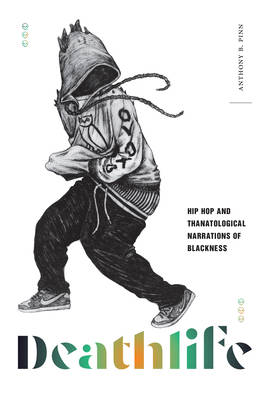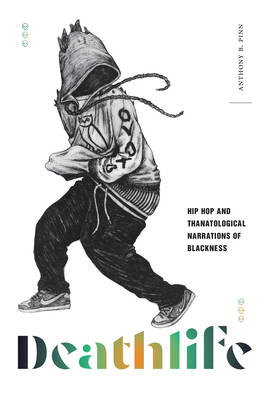
- Afhalen na 1 uur in een winkel met voorraad
- Gratis thuislevering in België vanaf € 30
- Ruim aanbod met 7 miljoen producten
- Afhalen na 1 uur in een winkel met voorraad
- Gratis thuislevering in België vanaf € 30
- Ruim aanbod met 7 miljoen producten
Zoeken
€ 157,45
+ 314 punten
Uitvoering
Omschrijving
In Deathlife, Anthony B. Pinn analyzes hip hop to explore how Blackness serves as a framework for defining and guiding the relationship between life and death in the United States. Pinn argues that white supremacy and white privilege operate based on the right to distinguish death from life. This distinction is produced and maintained through the construction of Blackness as deathlife. Drawing on Afropessimism and Black moralism, Pinn theorizes deathlife as a technology of whiteness that projects whites' anxieties about the end of their lives onto the Black other. Examining the music of Jay-Z; Kendrick Lamar; Tyler, the Creator; and others, Pinn shows how hip hop configures the interconnection and dependence between death and life in such a way that death and life become indistinguishable. In so doing, Pinn demonstrates that hip hop presents an alternative to deathlife that challenges the white supremacist definitions of Blackness and anti-Blackness more generally.
Specificaties
Betrokkenen
- Auteur(s):
- Uitgeverij:
Inhoud
- Aantal bladzijden:
- 240
- Taal:
- Engels
Eigenschappen
- Productcode (EAN):
- 9781478020608
- Verschijningsdatum:
- 12/01/2024
- Uitvoering:
- Hardcover
- Formaat:
- Genaaid
- Afmetingen:
- 160 mm x 236 mm
- Gewicht:
- 498 g

Alleen bij Standaard Boekhandel
+ 314 punten op je klantenkaart van Standaard Boekhandel
Beoordelingen
We publiceren alleen reviews die voldoen aan de voorwaarden voor reviews. Bekijk onze voorwaarden voor reviews.







